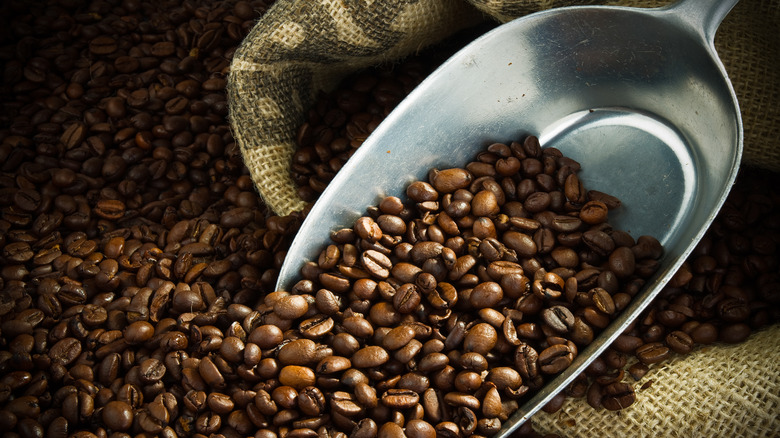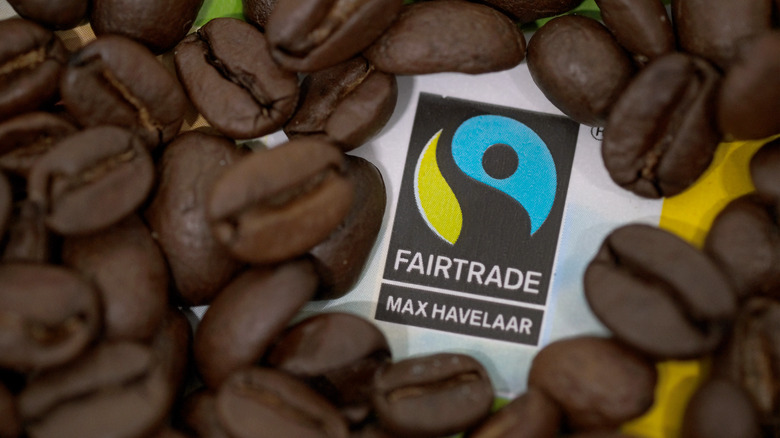Fair Trade Coffee Vs. Regular Coffee: What's The Difference?
It's no secret: the world loves coffee. As the most popular beverage on the planet, more than two billion cups are drunk every single day (via British Coffee Association). In fact, over half of Americans can't start their day on a good note without having at least one cup in the morning (via Study Finds). But, besides its role in getting you out of bed and ready to tackle the day, coffee is a huge global economic power.
Around the world, 120 million people are financially reliant on coffee alone (via Stacker), and as of 2021, the industry's exports are valued at more than $36 billion (via World's Top Exports). On average, a bag of roasted beans will cost you $16 (via Global Coffee Report). With all these dollar signs going around, one has to wonder: how does all that money make its way back to the community it came from? That's where you'll find the key difference between fair trade and regular coffee.
What fair trade means and why it's important
While the majority of coffee is consumed in North America and Europe, where it is adored for its presence in a positive morning routine (via Study Finds), 80% of coffee exports come from smallholder farms in the Global South (via IISD). In countries like Brazil, Vietnam, Columbia, Kenya, and Mexico, non-fairtrade coffee has a starkly different kind of human impact — one that's tied to unfair working conditions, child labor, human trafficking, and labor exploitation (via Borgen Project).
As more consumers learn about these issues, ethical coffee brands with Fairtrade certification labels are becoming more popular. Coffees with certifications from Fairtrade International, The Fair Trade Federation, or Fair Trade Certified can be found on the bags of many different coffees at your local grocery store. Coffee brands with any of these labels have gone through independent assessments to verify that the business meets fair trade criteria of social, economic, and environmental standards (via Fairtrade America).
In a global economy where the price of coffee is constantly fluctuating, fair trade organizations play a huge role in ensuring that coffee farmers and workers are able to earn a sustainable income (via Fairtrade). With the stability it brings, workers are less likely to be exploited or work in dangerous conditions, and children are less likely to be taken out of school (via World Vision). In this way, fair trade coffee directly supports a better standard of living for agricultural communities and families around the world.

